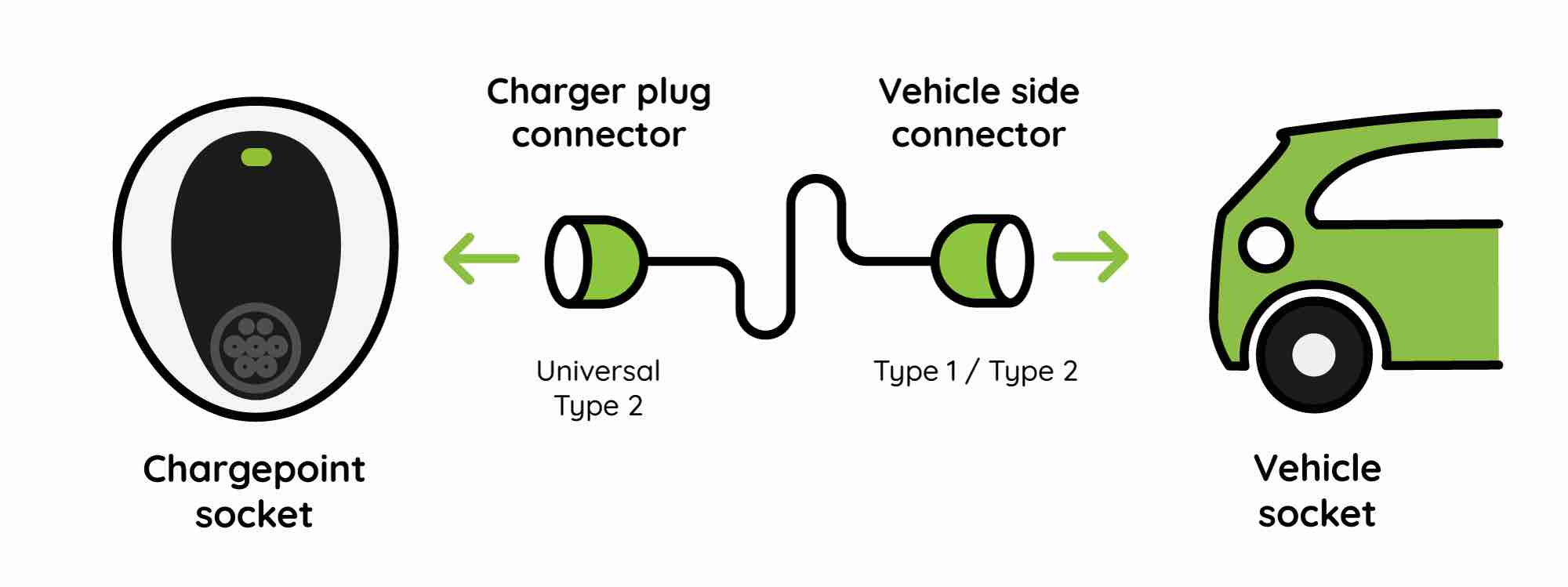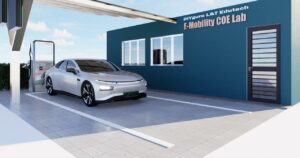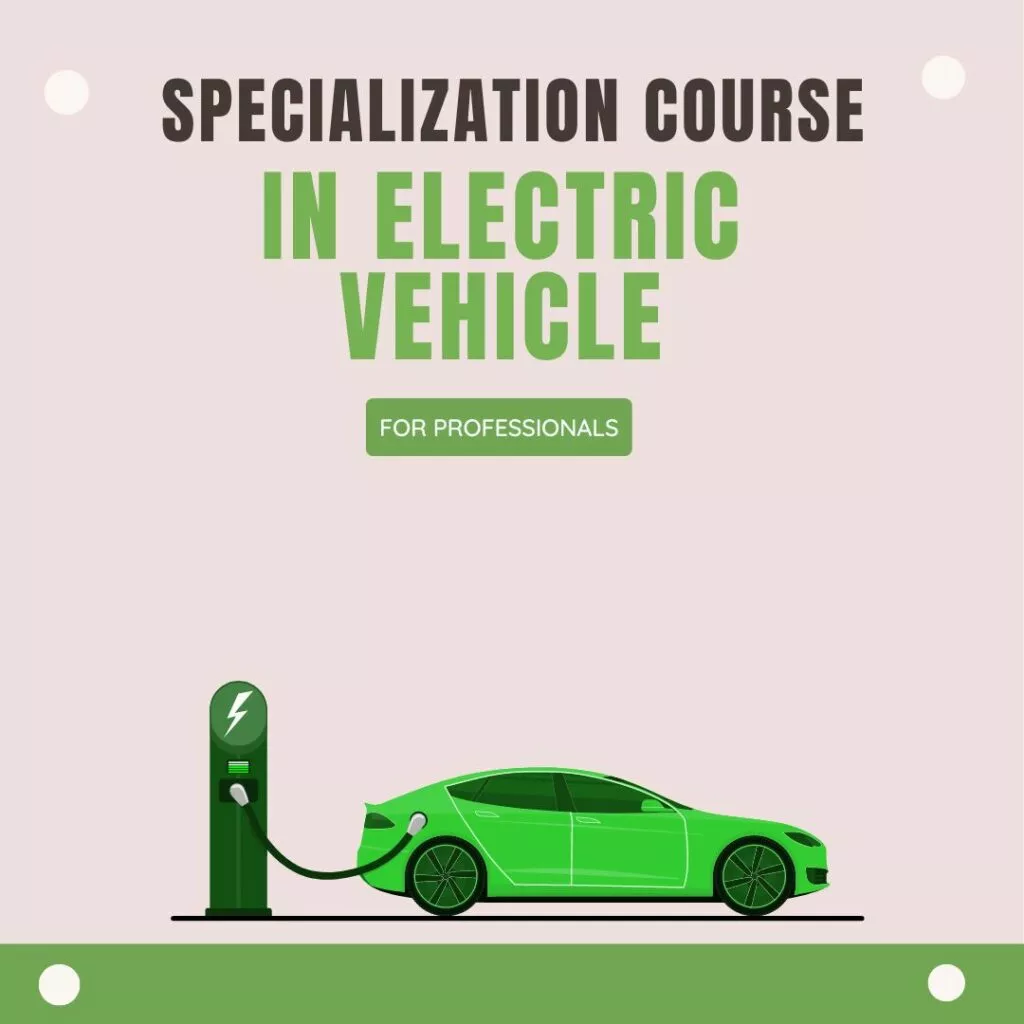Introduction:
As electric vehicles (EVs) gain popularity, understanding the various charging connectors becomes essential for EV owners. In this blog post, we will focus on Type 1 connectors, exploring their features, compatibility, and advantages. Join us as we delve into the world of Type 1 EV charging connectors and gain insights into this widely used charging solution.
What is an EV Charging Connector?
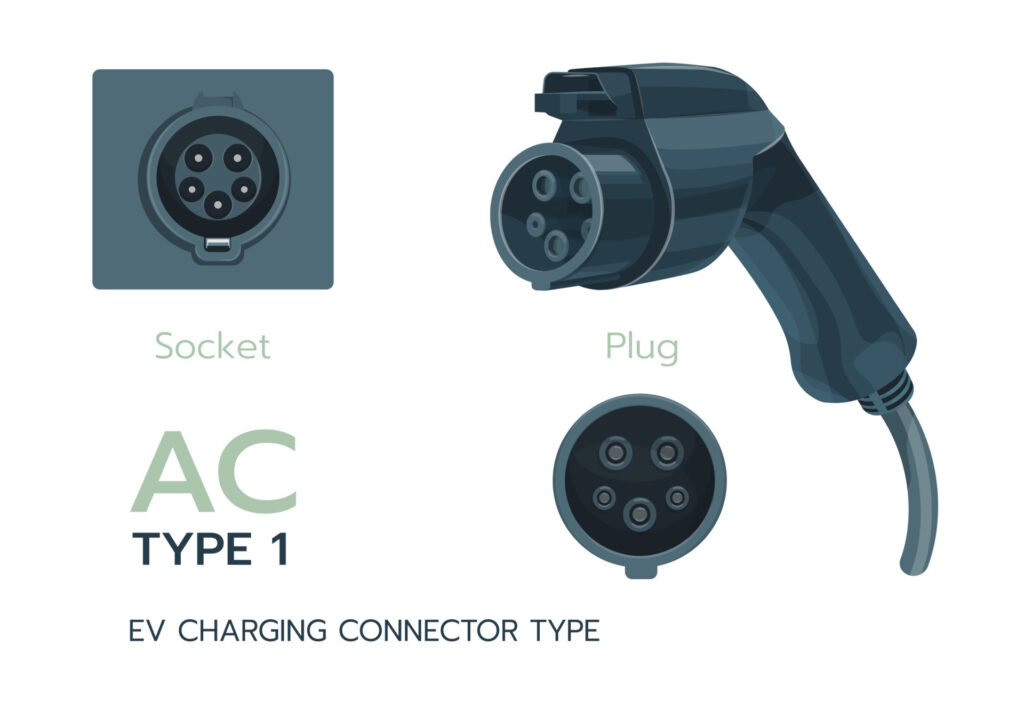
An EV charging connector is the physical interface between an electric vehicle and a charging station. It enables the transfer of electricity from the charging infrastructure to the vehicle’s battery, facilitating the charging process.
Understanding Type 1 Connectors:
Type 1 connectors, also known as SAE J1772 connectors, are widely used in North America and Japan. They are defined by their unique design and compatibility with specific electric vehicles.
Features and Design of Type 1 Connectors:
Type 1 connectors consist of a rectangular-shaped plug with five pins. These pins handle the transfer of power, communication, and safety signals between the vehicle and the charging station. The connectors are designed for single-phase AC charging and can support a maximum charging power of up to 7.4 kW.
Compatibility of Type 1 Connectors:
Type 1 connectors are primarily compatible with electric vehicles designed for the North American and Japanese markets. Many popular EV models, such as the Nissan Leaf, Mitsubishi i-MiEV, and Chevrolet Volt, utilize Type 1 connectors for charging.
Advantages of Type 1 Connectors:
- Widely Adopted: Type 1 connectors are prevalent in North America and Japan, making them readily available at charging stations in these regions.
- Standardized Communication: Type 1 connectors adhere to the SAE J1772 standard, ensuring interoperability and seamless communication between the vehicle and the charging infrastructure.
- Safety Features: Type 1 connectors incorporate safety mechanisms such as ground fault protection and interlock systems, promoting safe charging practices.
Notable Electric Vehicles Using Type 1 Connectors:
- Nissan Leaf: One of the best-selling electric vehicles globally, the Nissan Leaf is compatible with Type 1 connectors and offers convenient charging options.
- Mitsubishi i-MiEV: This compact electric vehicle utilizes Type 1 connectors, providing reliable charging solutions for its owners.
- Chevrolet Volt: The Chevrolet Volt is a plug-in hybrid electric vehicle that employs Type 1 connectors for its charging needs.
Conclusion:
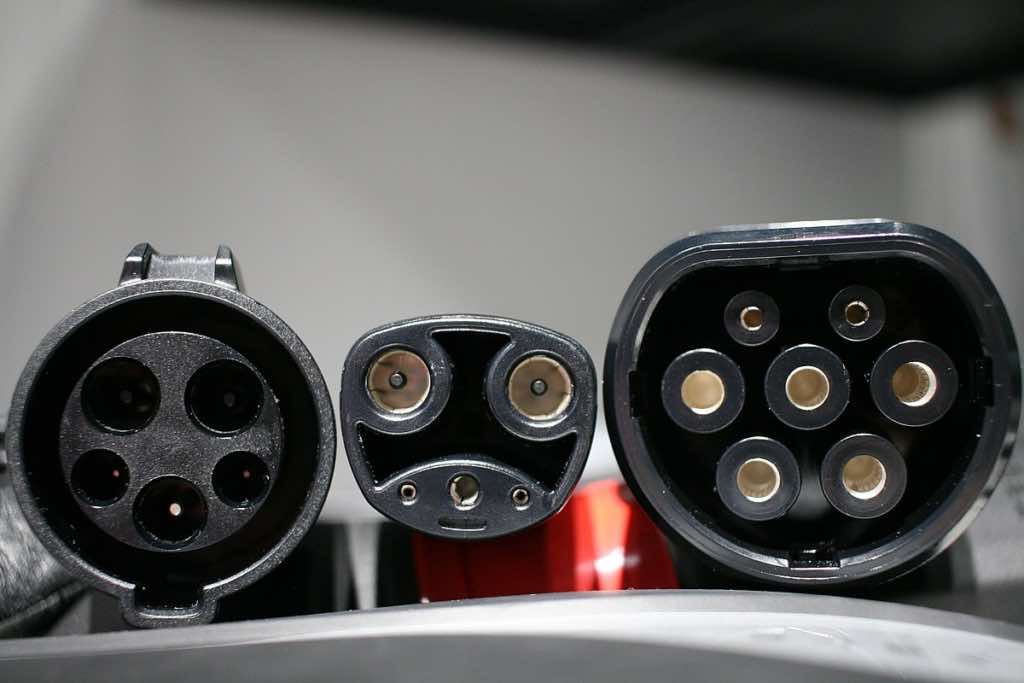
Type 1 connectors are a widely adopted charging solution for electric vehicles, particularly in North America and Japan. With their standardized design, compatibility with popular EV models, and emphasis on safety, Type 1 connectors offer a reliable and user-friendly charging experience. As electric vehicle infrastructure continues to expand, understanding the features and advantages of Type 1 connectors becomes crucial for EV owners seeking efficient and seamless charging solutions.
FAQs:
Q1. What is a Type 1 EV charging connector?
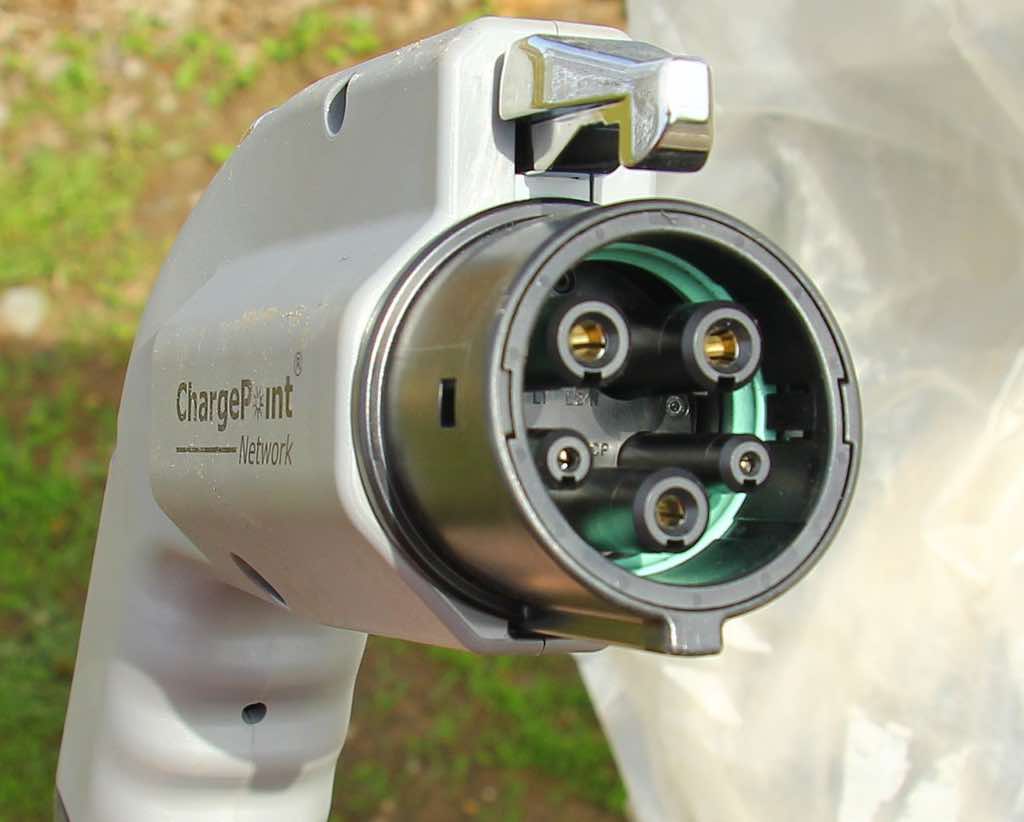
Ans. A Type 1 EV charging connector, also known as an SAE J1772 connector, is a charging interface used in North America and Japan. It features a rectangular-shaped plug with five pins for power transfer, communication, and safety signals.
Q2. Are Type 1 connectors compatible with all electric vehicles?
Ans. Type 1 connectors are primarily compatible with electric vehicles designed for the North American and Japanese markets. It is important to check your vehicle’s specifications to ensure compatibility.
Q3. Can Type 1 connectors be used for fast charging?
Ans. Type 1 connectors are primarily designed for single-phase AC charging and have a maximum charging power of up to 7.4 kW. They are not suitable for high-power fast charging.
Q4. Are Type 1 connectors standardized?
Ans. Yes, Type 1 connectors adhere to the SAE J1772 standard, ensuring interoperability and seamless communication between the vehicle and the charging infrastructure.
Q5. Do all electric vehicle charging stations have Type 1 connectors?
Ans. While Type 1 connectors are prevalent in North America and Japan, not all charging stations support Type 1 connectors. It’s important to check the available connector types at charging stations before selecting one.
Q6. Can I use an adapter to connect a Type 1 connector to a different connector type?
Ans. Yes, adapters are available that allow you to connect a Type 1 connector to different connector types. However, it is crucial to ensure compatibility and safety when using adapters.
Q7. Are Type 1 connectors safe?
Ans. Yes, Type 1 connectors incorporate safety features such as ground fault protection and interlock systems to ensure safe charging practices.
Q8. Can I charge my electric vehicle using a Type 1 connector at home?
Ans. Yes, if your electric vehicle is compatible with Type 1 connectors, you can install a Type 1 charging station at home for convenient charging.
Q9. Are Type 1 connectors waterproof?
Ans. Type 1 connectors are generally designed to be weather-resistant, offering protection against rain and other external elements. However, it’s always recommended to check the specific features of a connector for waterproof capabilities.
Q10. Can I retrofit my electric vehicle to use a Type 1 connector if it doesn’t have one?
Ans. Retrofitting a different charging connector on an electric vehicle may not be feasible or recommended. It is best to consult with a certified electrician or your vehicle manufacturer for guidance on charging connector compatibility and modifications.


